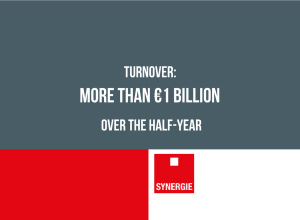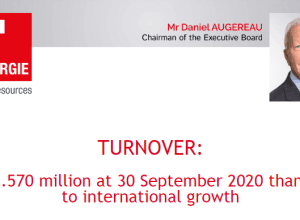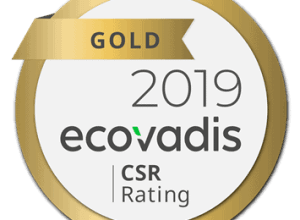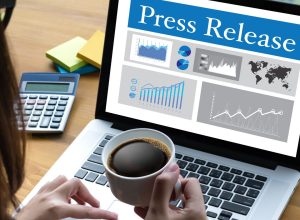ESG is not just a buzzword. It’s a competitive advantage you can leverage too


Are your competitors not only talking about ESG but actually implementing it? They are gaining better access to financing, high-quality employees, and customer trust. How can you join them and avoid getting lost in empty phrases?
The Responsible Business 2025 Conference, held on May 27 in Bratislava under the banner of TA3 Konferencie, revealed the gap between what companies claim about responsible business and how they actually operate. Representatives from companies like DM drogerie markt, DSV, UNIQA, and Nomus demonstrated that ESG can be a competitive advantage. The President of Slovakia openly criticized greenwashing and called for concrete actions.
Does ESG affect your company?
ESG (Environmental, Social, Governance) is not just another acronym for corporate slides. It’s a framework that brings together environmental responsibility, a people-centric approach, and fair governance. It applies to small, medium, and large companies – across manufacturing and services alike.
ESG should be addressed by businesses seeking investment or better credit conditions, companies employing multiple generations, brands that care about their reputation with the market, employees, and customers – and all businesses that want to survive the upcoming EU regulatory pressure.
With EcoVadis certification and an implemented Integrity Line, SYNERGIE can help companies not only with HR services but also with building a credible ESG strategy. When your employees, clients, or investors see that you collaborate with verified, responsible partners, it also strengthens your own credibility.
ESG as a competitive advantage
One thing was clear: companies that systematically integrate ESG gain not only public trust but also better access to finance and investment. Banks and investors increasingly consider ESG indicators as key decision-making criteria. The case of DM drogerie markt showed that sustainability can be practical: the company invests in sustainable supply chains and implements flexible work models that reflect employees’ life situations. “They don’t refer to employees as employees, but as collaborators, and allow them to realistically set their work schedules based on when and how they can work,” shared Emilia Schullery, Strategic People Partner at S&you.
Trust and reputation are built through authenticity and transparency
The conference made it clear that the public no longer judges companies by their marketing, but by their tangible actions. Responsible behavior towards employees, customers, and society is the reason people remain loyal to a company – or leave it.
“Companies appear transparent, but often the content they communicate doesn’t reflect reality. In practice, issues such as discrimination, flexibility, and ageism are still very real. There’s a lack of integration of women, experts, and seniors.
Companies are unable to respond to the level of time and location flexibility the market currently demands. The need for innovation is obvious, discussions happen, but effective implementation is missing,” warned Schullery.
The topic also touched on the use of data in HR, as applicants are increasingly evaluated by software or junior staff without the skills or experience to make quality decisions. Instead of algorithms, companies should return to using human judgment – it’s essential for building trust.
“We’ve long observed a brain drain to foreign countries.
Companies and the state fail to create a sustainably livable space for a demanding, change-embracing population. They are losing credibility, and the public is seeking alternative forms of self-realization and income. Decisions are often made based on incomplete information because both the state and companies have repeatedly disappointed them – often with significant socio-economic consequences,” explained Emilia Schullery.
Greater legislative pressure is coming
Both Europe and Slovakia are moving toward stricter regulation in the ESG space. Sustainability is no longer optional – concrete directives, reporting requirements, and rules are on the way. Companies that are not prepared risk not only losing public trust but also facing legal penalties or losing access to subsidies and financing.
Viktoria Kolek, Sales Specialist at SYNERGIE, pointed out that small and medium-sized businesses often assume ESG doesn’t concern them. “But that’s a misconception – ESG is not just about energy or industry. It also includes whether you can offer a genuinely flexible work model, approach people individually, or how you evaluate their performance.”
Responsible business is not a choice
“Start truly listening to people – don’t resist or explain why something can’t be done. Let them be authentic. Don’t fear experienced people. Be flexible. When you give people what they truly need, they’ll return more than you expect,” concluded Emilia Schullery.
The Responsible Business 2025 Conference made it clear that ESG is not just theory. It’s a framework that – when handled properly – helps companies become more resilient, stronger, and more trustworthy.
Today’s candidates aren’t just looking for a job title. They are looking for companies they can trust. We’ll help you find leaders and specialists who understand responsible business and know how to turn these principles into practice.
Discover what recruitment can look like when it’s not just about competencies, but about culture and trust. Contact us.









